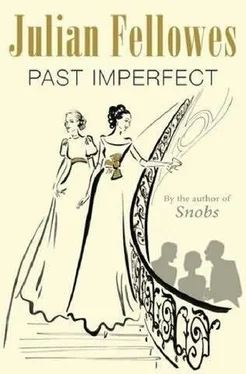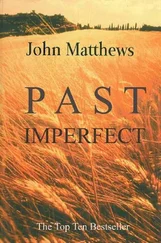‘What will you do if you pack it in?’
She shrugged. ‘I’m not sure. Philip’s got some idea about renting paintings to people.’
‘What paintings? To which people?’
‘I know,’ she acknowledged my query disloyally. ‘I don’t understand it, either. He thinks there might be quite a lot of money in it, but I can’t see how. Are you OK with pasta?’
I followed her back into the germ-rich kitchen and watched her take small bowls filled with leftover, dark, half-eaten things out of the fridge. She set about shuffling plates and banging saucepans together as she organised our feed. ‘How’s your mother?’ I asked.
Lucy nodded ruminatively, as if somehow this question had already been the subject of a long consideration. ‘Fine. Good.’ She looked across at me. ‘You know they sold Hurstwood?’
‘No, I didn’t. I’m sorry.’
She shook her head firmly from left to right. ‘Don’t be.’ She wasn’t having any of that. ‘Best thing that could have happened.’ Having rapped this out as severely as a Tsarist ukase to get the point of no regret across, she allowed herself to relax and elaborate. ‘It was about four years ago and of course it was terribly boo-hoo when it was going on, but there was no alternative. Not when Daddy did the sums. And the bonus is that they’re completely free now, for the first time in their lives. Johnny was never very interested in taking over, so it really is…’ She hesitated, trying to find a word she had not already employed that would support her argument effectively. She failed. ‘It’s fine.’
This phenomenon, where the losers in a revolution try to demonstrate their support for, and approval of, the changes that have destroyed them, always fascinates me. I suppose it is an offshoot of the Stockholm Syndrome, where kidnap victims start to defend their captors. Certainly, we’ve seen and heard a lot of it over the past few decades, especially among those toffs who are determined to show they are not being left behind. ‘We mustn’t cling on to the past,’ they say cheerily, ‘we have to move with the times.’ When the only movement possible for them, once all their values have been denigrated and destroyed, is down and out. ‘Where are they living?’ I asked.
‘Quite near Cheyne Walk. They’ve got a flat in one of those blocks.’
‘And Johnny and Diana? What happened to them?’ I had got to know Lucy’s brother and sister as the Season went on, not all that well, but enough to smile and kiss when we met.
‘Johnny’s got a restaurant. In Fulham. At least, he had a restaurant in Fulham. When I last spoke to him it sounded as if it was all going a bit off piste. But he’ll be OK. He’s always full of ideas.’
‘Is he married?’
‘Divorced. Two boys, but they live with his ex quite near Colchester, which is a bit trying. Mummy made a terrific effort at the beginning. But you know what it’s like, it meant hours on the train for the kids and all they ever wanted to do when they got to her was go home. So she’s slightly given up at the moment, but she says it’ll be much easier when they’ve grown up a bit.’ Lucy brought over the unappetising plates of yellow-grey pasta, smeared with what looked like the guts of a rabbit, and laid mine reverently before me. The world-weary bottle of Pinot Grigio was back in play.
‘What was his wife like?’ I lifted my fork without enthusiasm.
‘Gerda? Rather dull, to be honest, but not horrible or anything. She wasn’t someone you’d know. She’s Swedish. They met at Glastonbury. I quite liked her, actually, and the whole split was very civilised. They just didn’t have anything in common. She’s married to a neurosurgeon now, which seems to be much more the ticket.’
‘What about Diana?’ I always thought Lucy’s elder sister was the more beautiful of the two. She looked like a young Deborah Kerr and, unlike her more frenetic sibling, she had a sort of serenity unusual in someone of her age. We all thought of her as quite a catch and, to her mother’s unfeigned delight, she’d been heavily involved with the heir to a borders earldom when I knew them, though I had heard since that this hadn’t, in the end, come off. I noticed the question had penetrated Lucy’s armour slightly and I understood before I was told that all was not well here either. Time, it seemed, had been unkind to all the Daltons. ‘I’m afraid Diana’s not too good just now. She’s divorced as well, but hers was pretty grim.’
‘I know she didn’t marry Peter Berwick.’
‘No. More’s the pity, though I never thought I’d say it. He was always so stuck up and tedious when they were going out, but now, glimpsed across the chasm of the years, he seems like Paradise Lost. Her husband was American. You wouldn’t know him either. Nor would I, if I didn’t have to. They met in Los Angeles and he keeps promising to go back there, but he hasn’t so far. Worse luck.’
I had a sudden, vivid memory of Diana Dalton laughing at a joke I had told her. We were next to each other in the dining room at Hurstwood, before going on to a ball somewhere nearby. She was drinking at the time and did a massive nose trick, right into the lap of the Lord Lieutenant, seated blamelessly on her other side. ‘Did she have any children?’
‘Two. But of course they’re grown up now. One’s in Australia and the other’s working on a kibbutz near Tel Aviv. It’s annoying because since she’s been in the Priory the whole thing has landed on me and Mummy.’
One more sentence and I would have cried. Poor Lady Dalton. Poor Sir Marmaduke. What had they done to merit this annihilation by the furies? When I last saw them they were model representatives of the class that had run the Empire. They managed their estates, played their part in the county, frightened the village and generally did their duty. And I knew too well they had dreamed of a future for their children that would have consisted of much the same. Certainly their reveries bore no resemblance to what had actually come to pass. I thought of Lady Dalton at Queen Charlotte’s, gently probing me about my prospects. What splendid marriages she had planned for her two daughters, pretty and funny and well-born as they were. Would it have damaged the universe if just one of her wishes had come true? Instead, in forty years the entire Dalton edifice, centuries in the building, had come crashing down into the street. Their money was gone, and what little was left would soon be gobbled up by a feckless son and a reckless son-in-law. That’s if the Priory fees didn’t drain the pot dry before then. And the crimes that merited this punishment? The parents had not understood how to manage the changes the years would bring, and the children, all three of them, had believed the siren song of the Sixties, and invested everything in the brave new world they were so mendaciously promised.
There was a noise at the door. ‘Mum. Have you got it?’ I looked up. A young woman of about twenty was standing there. She was tall and would have been quite good looking, had she not been encased in an angry mist, irritated and impatient, as if we were needlessly keeping her waiting. Not for the first time I was struck by the phenomenon, another by-product of the social revolution of the last four decades, whereby parents these days frequently belong to an entirely different social class from their children. Obviously, this was Lucy’s daughter, but she spoke with a south London accent, harsh and unlovely in its delivery, and her plaited hair and rough clothes would have told a stranger of long, hard struggles on an under-supported housing estate, not weekends with her grandfather, the baronet. Having known Lucy at roughly the same age, I can testify that they could have come from different galaxies for all they shared. Why don’t parents mind this? Or don’t they notice it? Isn’t the desire to bring up your young with the habits and customs of your own tribe one of the most fundamental imperatives in the animal kingdom? Nor is this restricted to any one part of our society. Everywhere in modern Britain parents are raising cuckoos, aliens from a foreign place.
Читать дальше












